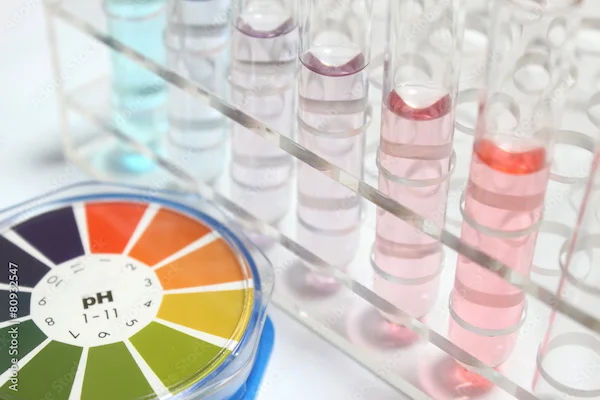Signs of Vitamin D Deficiency Symptoms
know what are the signs of vitamin D deficiency, symptoms, cause of deficiency, how to overcome it and tests to be done.

Written by Dr. Shaik Abdul Kalam
Reviewed by Dr. Rohinipriyanka Pondugula MBBS
Last updated on 3rd Aug, 2025

Introduction
Vitamin D is an essential nutrient that helps our bodies absorb calcium, maintain strong bones, and support immune function. However, many people don’t get enough of it, leading to a deficiency that can affect overall health. If you’ve been feeling unusually tired, experiencing muscle pain, or struggling with frequent illnesses, it could be due to low Vitamin D levels.
In this article, we’ll discuss the common signs of Vitamin D deficiency, why it happens, and how you can improve your levels naturally.
What Are the Symptoms of Vitamin D Deficiency?
Vitamin D deficiency often goes unnoticed because its symptoms can be subtle or mistaken for other conditions. Here are some key signs to watch out for:
1. Fatigue and Low Energy
Feeling constantly tired despite getting enough sleep? Low Vitamin D levels can lead to persistent fatigue, making daily tasks feel exhausting.
2. Bone and Muscle Pain
Vitamin D helps with calcium absorption, so a deficiency can cause bone pain, especially in the back, legs, or joints. Muscle weakness and cramps are also common.
3. Since Vitamin D
supports the immune system, a deficiency may make you more prone to infections like colds, flu, or respiratory issues.
4. Mood Changes
Low Vitamin D has been linked to mood disorders like depression and anxiety. If you’ve been feeling down without a clear reason, it might be worth checking your levels.
5. Slow Wound Healing
If cuts or injuries take longer than usual to heal, it could be due to insufficient Vitamin D, which plays a role in skin repair.
6. Hair Loss
Severe deficiency may contribute to hair thinning or excessive shedding, especially in women.
7. Bone Loss (Osteoporosis or Osteopenia)
Long-term deficiency weakens bones, increasing the risk of fractures and conditions like osteoporosis.
Consult Top Nutritionists For More Benefits
Why Does Vitamin D Deficiency Happen?
Several factors can lead to low Vitamin D levels:
Limited Sun Exposure – Our skin produces Vitamin D when exposed to sunlight. People who stay indoors often or live in colder climates may not get enough
Darker Skin Tone – Higher melanin reduces the skin’s ability to produce Vitamin D from sunlight.
Dietary Gaps – Few foods naturally contain Vitamin D, so those with poor diets may lack it.
Age – Older adults produce less Vitamin D from sunlight and may have absorption issues.
Obesity – Vitamin D is fat-soluble, so excess body fat can trap it, reducing availability.
Medical Conditions – Digestive disorders (like Crohn’s disease) or kidney/liver problems can affect absorption.
How Can You Improve Your Vitamin D Levels?
1. Get Safe Sun Exposure
Spending 10-30 minutes in the sun (without sunscreen) a few times a week can help boost Vitamin D. However, avoid excessive exposure to prevent skin damage.
2. Eat Vitamin D-Rich Foods
Include these in your diet:
Fatty fish (salmon, mackerel, tuna)
Egg yolks
Fortified milk, cereals, and orange juice
Mushrooms (exposed to sunlight)
3. Consider Supplements
If you’re unable to get enough from sunlight or food, a doctor may recommend Vitamin D supplements. Always consult a healthcare provider before starting any supplement.
4. Maintain a Healthy Weight
Since obesity can lower Vitamin D levels, maintaining a balanced diet and regular exercise helps.
5. Get Tested
If you suspect a deficiency, a simple blood test can confirm your Vitamin D levels.
When Should You See a Doctor?
If you experience persistent symptoms like extreme fatigue, bone pain, or frequent infections, consult a doctor. They can recommend a blood test and guide you on supplementation if needed.
Need a Vitamin D test or expert advice?
You can easily book a consultation or lab test through Apollo 24|7 for a hassle-free experience.
Final Thoughts
Vitamin D deficiency is common but often overlooked. Recognising the signs early and making simple lifestyle changes can help improve your health and well-being. If you think you might be deficient, don’t hesitate to get tested and seek professional advice.
Consult Top Nutritionists
Consult Top Nutritionists For More Benefits
Dr. Sasikamalam
General Practitioner
1 Years • MBBS
COIMBATORE
Apollo Sugar Clinic Coimbatore, COIMBATORE
Dr Sumanth R
General Physician
2 Years • MBBS
Bengaluru
PRESTIGE SHANTHINIKETAN - SOCIETY CLINIC, Bengaluru

Dr. Ramalinga Reddy
General Physician
5 Years • MBBS MD General medicine
Bengaluru
PRESTIGE SHANTHINIKETAN - SOCIETY CLINIC, Bengaluru
Dt. Ila Sharma
Clinical Nutritionist
18 Years • Master in food & Nutrition
Gurugram
VIPUL GREENS - SOCIETY CLINIC, Gurugram

Dr. Bhukya Pavan Kalyan
General Physician
5 Years • MBBS DNB Paediatrics
Bengaluru
PRESTIGE SHANTHINIKETAN - SOCIETY CLINIC, Bengaluru
Consult Top Nutritionists
Dr. Sasikamalam
General Practitioner
1 Years • MBBS
COIMBATORE
Apollo Sugar Clinic Coimbatore, COIMBATORE
Dr Sumanth R
General Physician
2 Years • MBBS
Bengaluru
PRESTIGE SHANTHINIKETAN - SOCIETY CLINIC, Bengaluru

Dr. Ramalinga Reddy
General Physician
5 Years • MBBS MD General medicine
Bengaluru
PRESTIGE SHANTHINIKETAN - SOCIETY CLINIC, Bengaluru
Dt. Ila Sharma
Clinical Nutritionist
18 Years • Master in food & Nutrition
Gurugram
VIPUL GREENS - SOCIETY CLINIC, Gurugram

Dr. Bhukya Pavan Kalyan
General Physician
5 Years • MBBS DNB Paediatrics
Bengaluru
PRESTIGE SHANTHINIKETAN - SOCIETY CLINIC, Bengaluru

 (1).webp)


